#Teddy kent
Note
every time i see you post about emily of new moon i'm like "lmm twilight crossover??"
tumblr will correct me if I'm wrong of course, of all books, I feel like emily is spiritually closest to twilight. Teddy Kent belongs in the twilight series and I will die on that hill
#he's just Ken(t)#teddy kent#i have never read or watched twilight tho so i could easily be wrong#he just fits the vibe
29 notes
·
View notes
Text
My new headcanon: Emily Starr and Teddy Kent's soulmate connection started even before they met. They believed that they saw each other for the first time in Sunday school; but neither of them was present there at this time. If they saw each other, it was only a dream or a vision.
Now, here is where this idea came from (all quotes are from the book - Emily of New Moon by L. M. Montgomery):
"Emily was secretly not averse. She had seen Teddy Kent but once, at Sunday School the day before he was taken seriously ill, and she had liked his looks. It had seemed that he liked hers, too, for she caught him staring shyly at her over the intervening pews several times."
But, it wouldn't be possible. From Emily of New Moon we know that Emily had been sent to the school almost immediately after moving into New Moon:
"THAT first Saturday and Sunday at New Moon always stood out in Emily’s memory as a very wonderful time [...] It had been decided in family conclave that Emily was not to go to church that day.
“She has nothing suitable to wear,” said Aunt Elizabeth. “By next Sunday we will have her white dress ready.”
One can argue that Sunday School does not equal mass and of course, that's right. So, it is not impossible (although, due to the lack of the proper clothing, very un-Murray-like) that Emily might have been sent to the Sunday school, while not attending the church service.
But... firstly, if that was the case, Montgomery would have described this Sunday event. It would have been Emily's first meeting with other Blair Water's children - even if they hadn't been unpleasant, there would be a lot of staring at ill-dressed little girl from New Moon. These glares would have probably pierced Emily's sensitive soul and make her a lot less excited over the perspect of attending a regular school.
Secondly, most children wore their best clothes for both church and Sunday school.
Thirdly, Aunt Elizabeth hadn't said a word about attending Sunday School, when she decided Emily wouldn't go to the church:
"No, you are not going to church to-day. You can wear the black dress to school to-morrow. We can cover it up with an apron.”
It seems that the only reason Aunt Elizabeth allowed Emily to wear her black, cheap dress to school was because it would have been completely covered by the apron - yet Emily hadn't seen that hideous item of clothing until Monday. So, I believe it's quite safe to assume she didn't attend either school, either church service this first Sunday.
Emily's first day of school takes place right after Sunday: "Aunt Elizabeth drove Emily to school the next morning."
There, again, it is Rhoda Stuart, who is a reason I believe Teddy couldn't have attended Sunday school as well. Rhoda tries to befriend Emily on that first day and tells her:
“Oh, everybody in our class has a beau. Mine is Teddy Kent. [...] Teddy wasn’t in school to-day—he’s been sick all June."
It is, of course, possible that Teddy might have attended the school (and Sunday school, for that matter), while sick. It might have been something quite insignificant at first; a cough, runny nose, other symptoms of cold. His illness might have gotten more serious only the Monday of Emily's first day of school.
But still, Rhoda's use of words suggests something else: that Teddy was unable to attend either school, either church, for the last few days (or weeks) of June.
Besides, Emily would have probably noticed that Teddy had looked a little under the weather (if Rhoda described him as being "sick" for at least the last few days), yet, when she remembers seeing him for the first time, he seems perfectly healthy and allert:
"He was very handsome, Emily decided. She liked his thick, dark-brown hair and his black-browed blue eyes, and for the first time it occurred to her that it might be rather nice to have a boy playmate, too."
Of course, one can argue that both Teddy and Emily went to Sunday school that day; she, in her cheap black dress, somehow not attracting attention to herself; he, with his runny nose or a fever, somehow still able to notice the new girl and smile shyly at her.
Emily might have thought Teddy was very handsome, even if he had looked a bit sickly; he might have noticed her even despite his illness.
But I like the idea of Teddy and Emily sharing their uncanny bond even before meeting each other. He might have dreamt of seeing her in the church, while he was laying feverish in a bed; she might have had a vision of attending the Sunday school while, in fact, she never went there, but spent her Sunday in Cousin Jimmy's company.
Neither of them ever asked others about it; they both believed that it had really happened.
In a way, it would have been another "I knew I loved you before I met you" moment. It might have also explained why, despite spending a decade away from each other, despite not talking or writing for years, their bond was still so strong.
Not to mention, there were other examples of their uncanny connection: Teddy hearing Emily's voice calling to him that night she was locked in a church, the Flavian, Emily's dreams of Teddy (not being able to find him, while chasing after his signal; the dream of Teddy of old times, just before learning about his engagement to Ilse).
Most probably: it was just LMM's small mistake... which I turned into a headcanon. I am aware of this. Well, what can I say.
25 notes
·
View notes
Text
Because of @alwayschasingrainbows, I’ve been mulling a lot over this part in Emily’s Quest:
“I wish I could hate Ilse. It would make it easier," she thought drearily. "If she loved Teddy I think I could hate her. Somehow, it isn't so dreadful when she doesn't. It ought to be more dreadful. It's very strange that I can bear the thought of his loving her when I couldn't bear the thought of her loving him."
It is, indeed, very strange, because the natural reaction would be the inverse: that Emily would prefer that Teddy not love Ilse, and it wouldn’t matter what Ilse felt for him. But I feel as though here we’re up against the subtle but constant theme between Emily and Teddy of love as possession: Emily knows what it’s like to be loved/possessed by Dean (and ultimately rejected it). She knows that Teddy’s mother loves/possesses him in a cruel way. If Ilse loved Teddy, Emily might think, she would possess him like that: remove him from his own autonomy in a way that has been proven throughout the series to be corrosive. That’s what Emily would hate.
Of course, there’s the issue that Teddy loving/possessing Ilse doesn’t hurt Emily in the same way—but we can excuse this with the fact that Emily knows Ilse loves Perry, so something of her heart would always remain separate from Teddy. (I wonder if this might also be a reason for Emily to hate the idea of Ilse loving Teddy--it wouldn't be exclusive). And I wonder if Emily would prefer that Teddy love/possess Ilse as opposed to anyone else, if it couldn’t be her. That’s the benefit of the doubt I’d give her on that score.
17 notes
·
View notes
Text
Yesterday Road, Today Road, Tomorrow Road...
Perhaps it's just another manifestation of my overthinking, but it seems to me that the three paths in Long John's Bush might have been written as a metaphor for Emily's life. Each path seemed to be somehow linked to a person who was important to Emily.
The paths were named by Emily and her friends, because: "The To-day Road is by the brook and we call it that because it is lovely now. The Yesterday Road is out in the stumps where Lofty John cut some trees down and we call it that because it used to be lovely. The To-morrow Road is just a tiny path in the maple clearing and we call it that because it is going to be lovely some day, when the maples grow bigger." (Emily of New Moon).
TO-MORROW'S ROAD (EMILY'S AMBITIONS AND DREAMS. TEDDY KENT):
The metaphor of Tomorrow Road was most clearly outlined. On the one hand, of course, it symbolized Emily's passion for writing and her ascent to the Alpine Path of glory and fame. As for the character with whom Tomorrow Road was most closely associated, it was Teddy Kent.
First of all, To-morrow Road never changed its name, even though by the time Emily reached her early teenage years, the maples grew big. In Emily Climbs, Tomorrow Road became the place of Teddy and Emily's meetings, where they shared their dreams and hopes for the future: "Then Teddy came for me and we walked together up the field and through the To-morrow Road. It is really a To-day Road now, for the trees along it are above our heads, but we still call it the To-morrow Road—partly out of habit and partly because we talk so much on it of our to-morrows and what we hope to do in them. Somehow, Teddy is the only person I like to talk to about my to-morrows and my ambitions. There is no one else." (Emily Climbs).
To-morrow Road was a place that marked the milestones for both Teddy and Emily (Teddy especially). Here he told Emily that his mother decided to allow him to attend Shrewsbury High School; here he told her that he had received an art scholarship and was going to the college in Montreal. Here he proposed. Here she was waiting for him with Dean's letter.
It seemed to me that Teddy and Emily's relationship was all about the future. Thorough Emily Climbs they seemed to think that they couldn't be each other's "today", because they both had their own separate dreams ("to-morrows") to conquer before they would be free to set on their rainbow quest together. (Side note: Montgomery skillfully mentioned that To-morrow Road was in fact - already To-day Road).
By the end of Emily Climbs, as their romance started to blossom, Emily's initial reaction was fear. Early on, she realised that she served a jealous goddess. We didn't get a glimpse into Teddy's feelings, but it was obvious from the start how ambitious and passionate he had been for his art. Perhaps it was something more than just a fear of Emily's refusal that drove him to silence when he had meant to ask her to wait for him? The scene itself happened on To-morrow Road (another symbol that it wasn't their time yet, perhaps?). During this scene, they both experienced a clash of two extremely strong passions: on the one hand, the desire to improve their art and fulfill their ambitions and dreams, and on the other - an awakening love. Teddy, before leaving for Montreal told Emily that there were two things in life that he had wanted "tremendously", but never told her that having her as his wife was one of these things.
I wonder if Juliet and Douglas Starr's tragic story might have forced Teddy's silence. Douglas Starr had once been young and ambitious too, but wouldn't have been accepted by Murrays because of his poverty. The result of this love was tragic; Juliet's elopement broke her family's heart and both she and Douglas died early, leaving Emily all alone. Perhaps Teddy felt that he might have been tolerated as Emily's friend, but not as her suitor. Since he seemed to doubt in his own success (especially since his chosen profession rarely resulted in a fortune), he might have been more likely to keep silent.
One quote of this scene between Teddy and Emily has always intrigued me:
"We walked along the To-morrow Road—[...]—until we reached the fence of the pond-pasture and stood there under the grey-green gloom of the firs. I felt suddenly very happy and in those few minutes part of me planted a garden and laid out beautiful closets and bought a dozen solid silver teaspoons and arranged my attic and hemstitched a double damask table-cloth—and the other part of me just waited." (Emily Climbs).
Because... was it possible that she had seen herself from the future? This was the exact spot where Teddy reconciled with Emily by the end of Emily's Quest. Where he had finally confessed his love [1]. But, most importantly, this was also a spot of the very last scene of the trilogy: Emily, waiting for Teddy to tell him that Dean had gave them a Disappointed House as a wedding gift [2]. There was a certain symbolism in Teddy coming to her - the exact opposite of To-morrow Road's scene that took place in Emily's Climbs, where it was Emily who went away, leaving him alone: "Teddy was looking at the dim gold of Blair Water and scowling. Again I had a feeling that night air was not good for me. I shivered, said a few polite commonplaces, and left him there scowling." (Emily Climbs).
In a way, their story came into full circle. They both achieved success and overcame their own biggest faults (pride, insecurities, selfishness, vanity). Unlike their seventeen year old selves, they got to know what loneliness meant - they found out that their ambitions were not enough to fulfill their heart's desires.
By the end of trilogy, Emily and Teddy still had their own "Alpine Paths" to climb, but from this time, they would have each other's help and support. They also had the dreams of future they share: of home, fireplace, toast and bacon and marmalade.
YESTERDAY ROAD. THE PAST AND FAMILY TRADITIONS. LOST DREAMS. JULIET MURRAY, DOUGLAS STARR, DEAN PRIEST.
Yesterday Road symbolized the past, for it used to be lovely once. Perhaps it might have been a place where Douglas and Juliet used to meet (their own "To-day Road"). For each member of the Murray family, Yesterday Road might have had a different meaning. For Elizabeth, it could have symbolized either her youth, either a period when Juliet was a child; for Laura - her former love for Dr. Burnley; for Jimmy - his lost potential; for Juliet - her childhood, family, first love.
For Emily, Yesterday Road symbolized family traditions (the chapter in which Cousin Jimmy told her family stories was titled "The Book Of Yesterday") as well as her parents' love story. All that shaped her as a woman and a writer, but also nearly became an obstacle to fulfilling her dreams. Due to Juliet's elopement, Aunt Elizabeth almost kept Emily from receiving an education. The whole family tried to marry Emily off to cousin Andrew, so that Juliet's story wouldn't repeat itself. During Emily's later years, Yesterday Road might have symbolized Emily's lost hopes and dreams.
The person who directly referred to Yesterday Road was Dean Priest: "I shall carry pictures of you wherever I go, Star," Dean was saying [...] "pacing up and down in this old garden—wandering in the Yesterday Road—looking out to sea." (Emily's Quest).
In the second part of the trilogy, Dean Priest directly admitted that he was aware that Emily's future would not be his future: 'I hate to hear of your to-morrows—they cannot be my tomorrows.' (Emily Climbs).
During the year that he and Emily had been engaged, Emily rarely thought about the future, and felt anxious about it: "Always to be afraid of to-morrow? Content—even happy with to-day—but always afraid of tomorrow. Was this to be her life? And why that fear of to-morrow?" (Emily's Quest). In the rare moments that Emily thought of her future, she saw Teddy, instead of Dean in those visions. "She saw herself there in the future—flitting through the little rooms—laughing under the firs—sitting hand in hand with Teddy at the fireplace—Emily came to herself with a shock. With Dean, of course, with Dean. A mere trick of the memory." (Emily's Quest).
Perhaps Emily didn't understand what Dean subconsciously realized: that he would never be able to fulfill Emily's future: "to let myself dream something that couldn't come true—that I knew ought not to come true—" (Emily's Quest). During the year they spent together, he allowed himself to dream, but was left with nothing more than memories and ashes. And so, for Dean a Yesterday Road symbolized the one golden year of his engagement; the only glimpse into real happiness he had ever had. Emily became his yesterday. It is interesting how he worded his letter, containing his wedding gift: "And some day I will come to see you in it. I claim my old corner in your house of friendship now and then." (Emily's Quest). Again, he doesn't refer to her future, but her past ("my old corner").
TODAY'S ROAD: CHILDHOOD. FRIENDSHIP. ILSE BURNLEY.
Today's Road symbolized Emily's happy childhood and her friendships. It is the one path that never seems to be stained with bitterness or regrets. As for a character that simply screams "TODAY" - it is obviously Ilse Burnley, who never seemed to care about the past or think of the future:
"As far as Ilse was concerned it seemed as if no quarrel had ever taken place. “Why, that was yesterday,” she said in amazement, when Emily, rather distantly, referred to it. Yesterday and to-day were two entirely different things in Ilse’s philosophy." (Emily of New Moon).
"Ilse was growing, too, blossoming out into strange beauty and brilliance, knowing no law but her own pleasure, recognizing no authority but her own whim." (Emily of New Moon).
"Ilse had always been a merry, irresponsible creature." (Emily's Quest). "All her life she had done exactly as she wanted to do whenever the whim took her. No sense of responsibility whatever." (Emily's Quest).
Besides, Ilse seemed to be the contant "today" of Emily's childhood and youth. She couldn't be Emily's "to-morrow", though, for both girls would have to carve their own separate futures, build their own homes in which the other one would be a cherished guest: "we'll visit each other, you and I—and compare our children—call your first girl Ilse, won't you, friend of my heart—" (Emily's Quest). Emily didn't seem to mind visiting the house Ilse was going to build with her imaginary husband; but she did mind being a guest at Teddy's house, few years later when Ilse repeats her invitation: "When Teddy and I come back and set up house in Montreal you must spend every winter with us, darling. New Moon is a dear place in summer, but in winter you must be absolutely buried alive." Emily made no promises. She did not see herself as a guest in Teddy's home." (Emily's Quest).
That's perhaps the difference: Ilse would be a vital part of Emily's future and vice versa, but it would be their husbands who'd be a part of their to-morrows. Even when Ilse got married to Perry and the three friends reunited, Emily's life wasn't complete. Perhaps it couldn't be, because Ilse - dear as she was - couldn't fill a certain longing in Emily's heart and soul - the voice that needed Teddy's love and presence.
Headcanons for the Long John's paths:
Juliet and Douglas used to walk through Yesterday Road. He asked her to marry him there. Before she eloped, Juliet had a good cry there. She was thinking of her half-sibling and her father - she loved them fiercely, despite everything.
Teddy and Emily said their wedding vows in Long John's Bush, under the firs where they used to meet and where they reunited. (Both Aunts were absolutely mortified by this idea). Or, if it wasn't an official ceremony, at least they had repeated the vows there. (Let's be real, Emily would definitely repeat her vows after the ceremony, changing "Frederick" into "Teddy").
The future generations liked playing on To-day Road.
The names of the paths were never changed, even if the paths themselves did.
The children of four friends invented their own names for the paths, though.
The quotes [1]-[3]:
[1] "Suddenly I heard Teddy's signal whistle in the old orchard. [...] We walked along the To-morrow Road—it has grown so beautiful that one wonders if any to-morrow can make it more beautiful—until we reached the fence of the pond-pasture and stood there under the grey-green gloom of the firs. [...] I'm going to work hard—I'm going to get everything possible out of those two years,' Teddy said at last,[...] '"And when I come back—' he repeated—stopped again. "'Yes?' I said. I don't deny to this my journal that I said it a trifle expectantly. "'I'll make the name of Frederick Kent mean something in Canada!' said Teddy." (Emily Climbs).
[2] "It came clearly and suddenly on the air of a June evening. An old, old call—two higher notes and one long and soft and low. [...] It came again. And Emily knew that Teddy was there, waiting for her in Lofty John's bush—calling to her across the years. She went down slowly—out—across the garden. Of course Teddy was there—under the firs. [..] He put out his hands and drew her to him, with no conventional greeting." (Emily's Quest).
[3] "How very—dear—of Dean. And I am so glad—he is not hurt any longer." She was standing where the To-morrow Road opened out on the Blair Water valley. Behind her she heard Teddy's eager footsteps coming to her." (Emily's Quest).
#lm montgomery#emily of new moon#Long John's Bush#Meta I guess?#And some headcanons#Tomorrow Road#Emily Starr#Teddy Kent#Ilse Burnley#Juliet Starr#Dean Priest#A long post#Thank you if you managed to read it all
13 notes
·
View notes
Text
When you suddenly gain consciousness and become aware that all your ships are the same, just in different fonts.
#nico di angelo#will solace#wilco#scorpius malfoy#albus severus potter#scorbus#teddy altman#billy maximoff#wicking#young avengers#pjato#percy jackon and the olympians#harry potter next generation#ao3#tim drake#conner kent#timkon#young justice
186 notes
·
View notes
Text
#dc comics#Marvel#Polls#Tim Drake#Cassie Sandsmark#Conner Kent#Kon-El#Bart Allen#Cissie King Jones#Greta Hayes#Anita Fite#Slobo#Billy Kaplan#Teddy Altman#Kate Bishop#Tommy Shepherd#Eli Bradley#America Chavez#Kid Loki#Loki Laufeyson#Noh-Varr#Young Avengers#Young Justice#Young Justice 1998#Young Justice 98#YJ 98
217 notes
·
View notes
Text
Another day goes by with me thinking that a hug from Clark Kent would fix all my problems
#what do you want me to say. i love that guy#he's like a teddy bear with laser eyes#and i just KNOW that he gives the kind of hugs that rearrange your spine#i need one of those#clark kent#superman
59 notes
·
View notes
Text
It’s their month

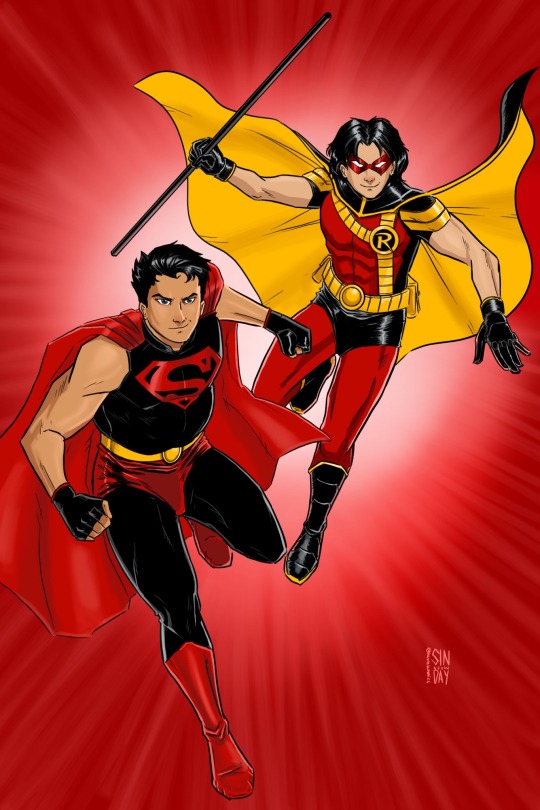
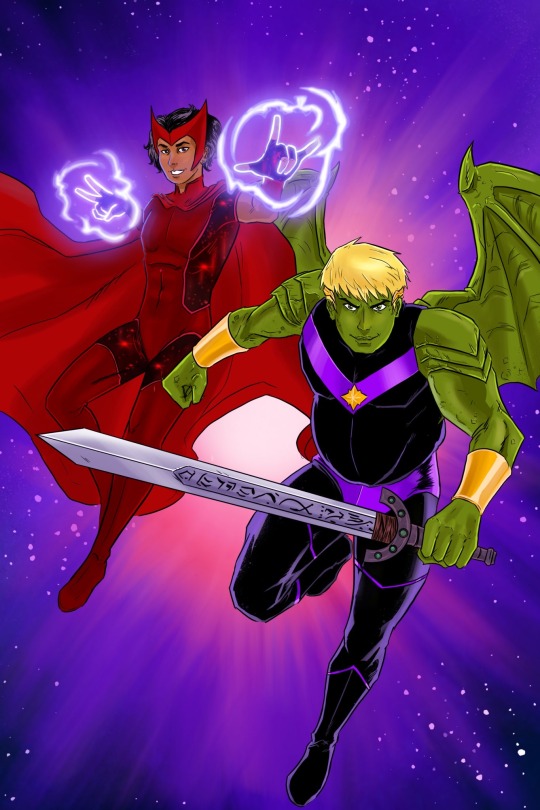
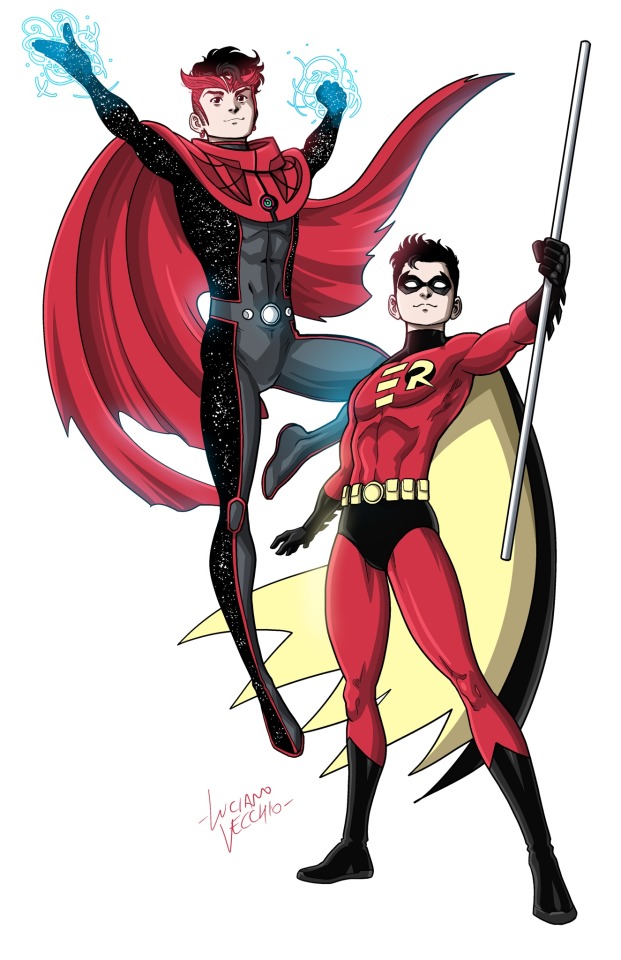



164 notes
·
View notes
Text
teddy kent would hear the line "You wouldn't last an hour in the asylum where they raised me" and get a thousand yard stare
16 notes
·
View notes
Text
Twenty two Teddy Kent's headcanons and semi-headcanons (created in a great hope that they will make him a little less of a stale piece of toast):
When he was a little boy, he used to have imaginary friends to play with; he believed that they were living in a garden near his house and were able to shrink in size to fit into the flower buds.
He used to draw pictures for every book he had read, because he thought the books were much better that way.
He made up stories, but instead of using words, he used illustrations.
He loved the myth of Vega of the Lyre and imagined the star as a land with two shining suns (one red and one blue). He imagined that he lived there before he was born (it's canon - quotes below). That was the reason Vega of the Lyre became Emily's favourite star.
He saved his allowance money to buy paints and pastels.
He made many pictures of Emily, but was too shy to show them to anyone.
He had no idea why most of Blair Water girls wanted to shake his hand, but he was too nice to refuse. In fact, they followed Rhoda Stuart's idea to count nine stars for nine nights, so that the first boy they shook hands with was going to become their husband. Emily was the one who told him about that custom. He laughed it off as silly, but secretely counted the stars and proceeded to shake Emily's hand. He told himself it was unrelated.
He sometimes wondered what his father looked like. His mother never showed him any photographs until she came to live with him. He was twenty five when he saw his father's picture for first time and he had to fight the tears down.
He really loved ice-skating and was pretty good at it. The first winter he and Emily were married, he insisted they go ice-skating at least once a week.
He painted old Mr. Morrison, standing on the church steps, with longing in his eyes. He felt very sorry for the man, after he stopped being angry at him for scaring Emily.
He learnt how to cook when he moved to Montreal. During his scholarship in Paris, he invented countless ways to cook beans (because they were cheap and filling - couldn't resist The Blue Castle reference).
He felt really ashamed during nude-painting classes. He couldn't talk to the models afterwards. His classmates laughed at him for being such a prude.
When he was studying in Paris, he used to sneak behind the guards into the Louvre, to stare in awe at the paintings of great artists (that is not my headcanon - it was in a fanfic entitled "Pine Trees and Pigsties" by Dhobi ki Kutti (dhobikikutti).
During his separation from Emily, he wrote her many letters, but never send them. He gave her these letters after they were married.
He took Emily to Paris for their honeymoon. They visited every single art gallery. It was Emily's idea, because she loved listening to him talk about art.
He never made any comments about Emily's dresses, because he thought she had looked beautiful all the time. He told her that after she got angry at him for not helping her choose an outfit to wear at one of the parties.
On the first day The Smiling Girl was being exhibited, he gave a speach about "the first girl who had believed in me". He never mentioned Emily's name. It hurt too much.
After he and Emily got married, he made illustrations for her books (again, the idea is from an amazing fanfic by hardlygolden - no pictures of him squarely).
He often thought that if he had ever had a daughter, he'd call her after his favourite constellation (I am obsessed with the name Lyra, so...).
He was good with the kids and really enjoyed playing with them. They usually created a huge mess that took ages to clean afterwards.
He liked painting pictures on the walls. He painted a Blair Water landscape on the walls of Emily's writing room in Montreal, so that she felt more at home.
He always bought chocolate bars for Ilse's and Perry's kids and told them in secret "not to tell mommy". Ilse pretended not to have noticed.
I borrowed @daydreamingandprocrastination tags, because they are just so amazing! I hope you don't mind, but if you do, please let me know and I'll be sure to change them!
"Teddy says that before he was born into this world he lived in another one where there were two suns, one red and one blue. The days were red and the nights blue. I don’t know where he got the idea but it sounds atractive to me. And he says the brooks run honey instead of water. But what did you do when you were thirsty, I said. Oh, we were never thirsty there. But I think I would like to be thirsty because then cold water tastes so good. I would like to live in the moon. It must be such a nice silvery place." (Emily of New Moon).
"Look at that star, Teddy—the one just over the youngest Princess. It's Vega of the Lyre. I've always loved it. It's my dearest among the stars. Do you remember how, years ago when you and Ilse and I sat out in the orchard on the evenings when Cousin Jimmy was boiling pigs' potatoes, you used to spin us wonderful tales about that star—and of a life you had lived in it before you came to this world." (Emily's Quest).
20 notes
·
View notes
Text
I know Teddy presumably doesn’t do much thinking because otherwise he’d have connected the dots a lot sooner and declared himself to Emily in some more honest and foolproof way than a letter left in the house of his irrationally possessive mother—
But really, what does he think when Emily takes him to the Disappointed House again and tells him they’re going to live there? What does he think to see Dean’s souvenirs and pictures, all with the stories that will never now be told to Emily? Does Teddy remember how he and Emily planned out their future in front of that fire and vowed never to have porridge for breakfast? Does he feel like this place belongs to him? Or is it just a relic of his childhood and the mausoleum of another man’s devotion to his wife where his current adult self can never quite feel at home?
#i don’t often have teddy thoughts but i was speculating what emily would think to see all of dean’s stuff again when she moves back in#and realized for teddy it would be 1000% weirder#lm montgomery#emily of new moon#teddy kent#emily starr#dean priest
26 notes
·
View notes
Text
I was always wondering what made Teddy Kent come back at by the end of Emily's Quest. So, I wrote some of my ideas (there are more of them, but my posts are always far too long, so I didn't include all of them here):
Headcanons for Teddy Kent's return by the end of Emily's Quest:
Beware; here comes crossover time: Doctor Redfern saw the portrait of Valancy made by Allan Tierney and was very impressed. He decided that he must have a portrait of his own darling wife made by an artist. Allan Tierney lived in New York and wouldn't travel to Montreal even for a millionaire, but... luckily, there was another - young and very talented - artist right under his nose. What's more, after the scandalous wedding-that-wasn't, Frederick Kent became even more fashionable than before. So, Doc. Burnley decided to commission Teddy to make a portrait of late Mrs. Redfern. Teddy met Valancy and Barney, who were spending winter in Montreal and - for the first time in his life - saw an example of happy and healthy love. (If we look at his memories... his mother's love was toxic and destructive. He was certain that Emily didn't care about him enough to even write him a letter explaining that she valued his friendship, even if she couldn't love him. Ilse left him hurt and ashamed. Perry completely forgot about their old friendship. Teddy had every right to not believe in love or friendship - just as Barney had). Maybe watching Valancy and Barney together and listening to their story (two lonely and unhappy people finding one another), made him realize that love was possible even for him? Or maybe Valancy's story of letting go of fear and people-pleasing inspired him to change his own life? (Again, perhaps it is just my impression, but I feel that there is a subtle similarity between Valancy Stirling and Teddy Kent. And between Barney and Teddy, too).
Perry Miller wrote to him, or the two of them accidentaly met (for example, in Montreal). Or, Perry came to Teddy's house to give him the sapphire ring back. In all cases, Perry explained that even though he was very happy with Ilse, he was sorry they had put Teddy in an uncomfortable situation during the wedding (a bit OOC, I know). Anyway, Perry would say something to break the ice (like "Do you remember when we used to play Midsummer-night's Dream as children? It seems that Emily, Ilse and I were playing it into our adult lives" and Teddy would answer bitterly "You should have counted me as well"). Or - Perry would say something else that made Teddy realize that he shouldn't have tried to build a life with anyone else than Emily.
He noticed a different example of a healthy love; an elderly couple walking hand in hand in the park; newlyweds, smiling to each other; happy parents with young children. And it made him want something similar.
He read one of Emily's stories or poems (or even novels) and something in them reminded him of Emily-of-old-days. He understood that she hadn't really changed at all and that, under the cold and seemingly unfeeling surface there still was Emily he had fallen in love with. Or perhaps, he had been moved by the plot of one of her stories or a line of her poem - it made him see that something was lacking in her (or his) life.
He reread the old letters Emily had written to him in the first year after he left Blair Water, before they became cold and distant with one another and recognized that he missed her dreadfully.
He looked at one of his portraits and noticed that he kept on painting Emily's soul, eyes, smile etc. into everything.
His mother had said something to him before she died. Not about the letter, of course (it is clear he had no idea about this), but perhaps something like "I was wrong about her", or similarly puzzling. Or just Emily's name. Although it sounds very ooc, I must say...
After his mother died, he was looking through her belongings to decide what he ought to have kept or given away and he found his father's things. There might have been something that inspired him to try again, like an old motto/engraving, his parents' picture (taken right after their wedding, when they were still happy and young), a book with handwritten notes in it (something like "Always do what you are scared of"), etc.
He found an old sketch of Emily that he had made in his early youth - and understood how much he missed her.
He looked at Vega of The Lyre during one night and realized that he couldn't go on like this anymore, thinking of what-might-have-been. Or maybe it reminded him of the old promise he and Emily had made.
During a party, he heard a song that made him remember Emily (for example: "I'm always chasing rainbows" - pun unintended, "After The Ball Is Over").
He went to Paris and looked at The Smiling Girl and it made him remember that summer in which he had believed Emily loved him.
He went to Paris and understood that all his memories of the city were unhappy (Emily's illness and her engagement to Dean) and that, in fact, he wanted to show the Paris to Emily and make new, happy memories.
He met one of his old schoolmates from Shrewsbury or Blair Water and they off-handedly mentioned Emily's name.
Another example of an uncanny bond between Emily and Teddy (he had a dream in which he heard her voice or saw her, or something similar).
Something simple: he saw a rainbow and remembered that they had been chasing rainbows together once (again, pun unintended).
One day he just decided enough was enough and he had to try again once more.
#lm montgomery#emily of new moon#the blue castle#emily of new moon spoilers#teddy kent#the blue castle spoilers#headcanons
7 notes
·
View notes
Text
Aaaah the Inbetween Time: when both DC and Marvel have yet to pull their queer characters out of the toy box for Pride specials.
#jay nakamura#ha'wea#jackson hyde#jon kent#teddy altman#daken akihiro#tim drake#bernard dowd#billy kaplan#hulkling#wiccan#midnighter#apollo#tommy shepherd#david alleyne#connor hawke#webslinger#kyle jinadu#cooper coen
49 notes
·
View notes
Text
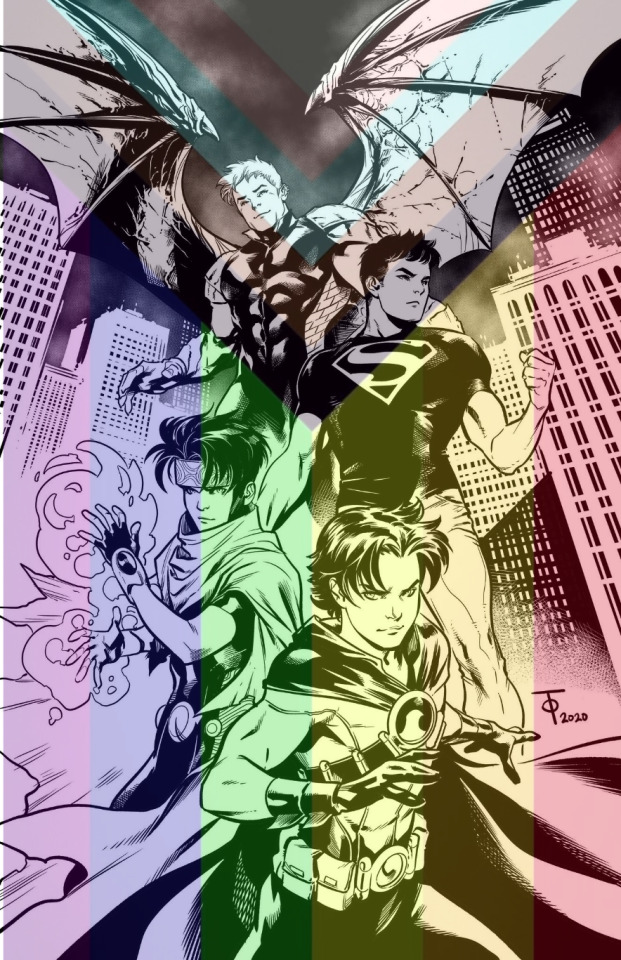
Art Credit to Marcus To
29 notes
·
View notes
Text
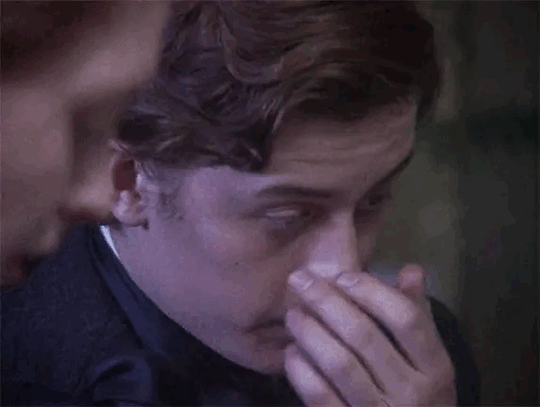



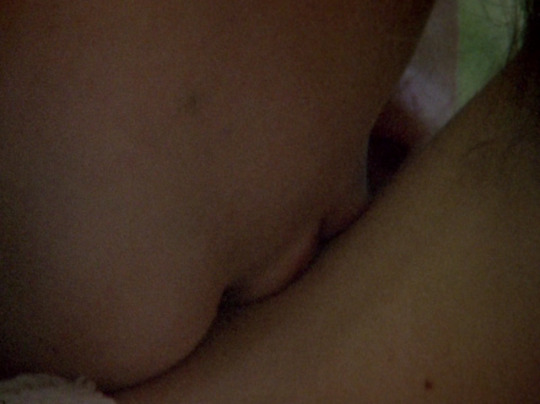
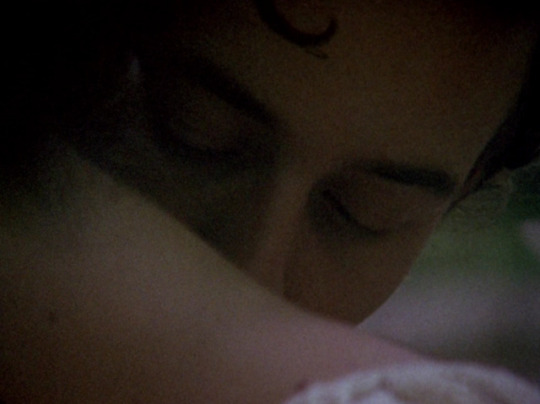


Edvard Munch (1974), except if I’m being honest, I spent at least fifty percent of the time watching this film thinking of Teddy Kent, because to me this would have been a perfect cast circa the EQ era… but more than that, I was also thinking about how far a tinnnny bit of Edvard’s depth would have gone for Teddy as a character. This film itself is an expressionistic masterpiece, criminally under-seen. An immediate favourite.
#link is in english!#edvard munch#teddy kent (kind of)#this movie is soooo good#recommended to literally everyone#peter watkins
20 notes
·
View notes